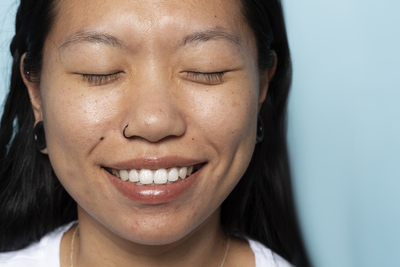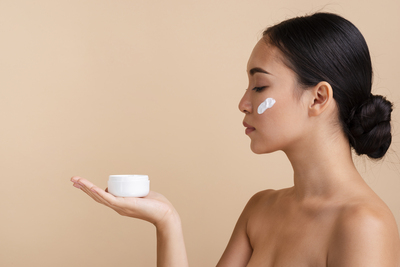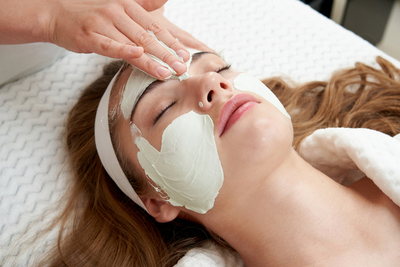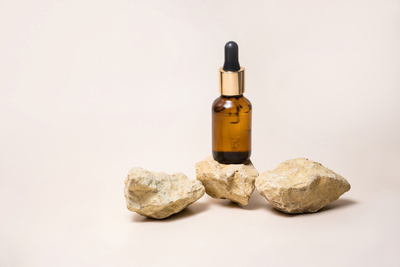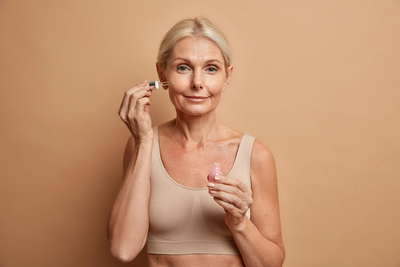Is Your Sunscreen Causing Breakouts? The Truth Acne-Prone Skin Needs to Hear
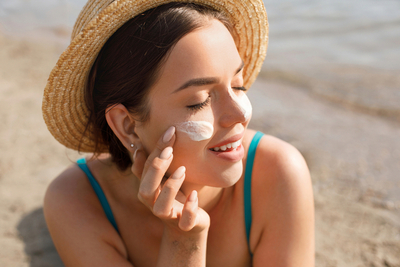
Sunscreen is a non-negotiable step in any skincare routine, but if you have acne-prone skin, the wrong SPF can sabotage your progress. Many formulas contain ingredients that can clog pores, trigger irritation, or even worsen breakouts. The good news? You can protect your skin and keep it clear with the right choices.
Why Sunscreen Is Essential (Even for Acne-Prone Skin)
Skipping sunscreen isn’t an option. UV rays can trigger premature aging, dark spots, and worsen acne scarring. According to the National Center for Biotechnology Information, daily SPF use is critical for preventing UV-induced skin damage and maintaining long-term skin health.
But the wrong sunscreen can undo your progress, which is why ingredient awareness is critical.
Common Sunscreen Ingredients That Can Cause Breakouts
Acne-prone skin requires a little extra detective work when it comes to SPF. Some of the most common acne triggers found in sunscreens include:
-
Comedogenic Oils
Ingredients like coconut oil, soybean oil, and wheat germ oil can block pores and lead to blemishes. A landmark Journal of the American Academy of Dermatology study classified various ingredients based on their comedogenicity, confirming that certain oils are high-risk for breakouts. -
Heavy Emollients
Thick, occlusive agents such as isopropyl myristate and lanolin derivatives can trap heat, sweat, and oil—creating the perfect breeding ground for acne-causing bacteria. -
Certain Chemical UV Filters
Avobenzone, octocrylene, and oxybenzone may irritate sensitive skin or exacerbate acne in some individuals. While not inherently comedogenic, their irritation potential can disrupt your skin barrier, making acne worse. -
Fragrances
Synthetic and natural fragrances can inflame sensitive skin, prolonging acne healing times.
What to Look for in an Acne-Safe Sunscreen
When shopping for sunscreen, check for these acne-friendly features:
-
Non-Comedogenic: Formulated without pore-clogging ingredients.
-
Oil-Free: Reduces excess sebum buildup.
-
Fragrance-Free: Lowers irritation risk.
-
Lightweight Texture: Gel, fluid, or watery creams tend to be more breathable.
-
Mineral UV Filters: Zinc oxide and titanium dioxide are gentle, non-comedogenic, and anti-inflammatory.
How SkinBuddy Helps You Check Your Sunscreen
Finding a truly acne-safe sunscreen doesn’t have to be a guessing game—SkinBuddy makes it simple:
- Scan any sunscreen to instantly see if it contains known pore-clogging or irritating ingredients.
- See detailed ingredient-level explanations so you know exactly why something might be harmful for acne-prone skin.
- Use the “Discover Ideal Match” feature and apply the Non-Comedogenic filter to get a curated list of acne-friendly sunscreens.
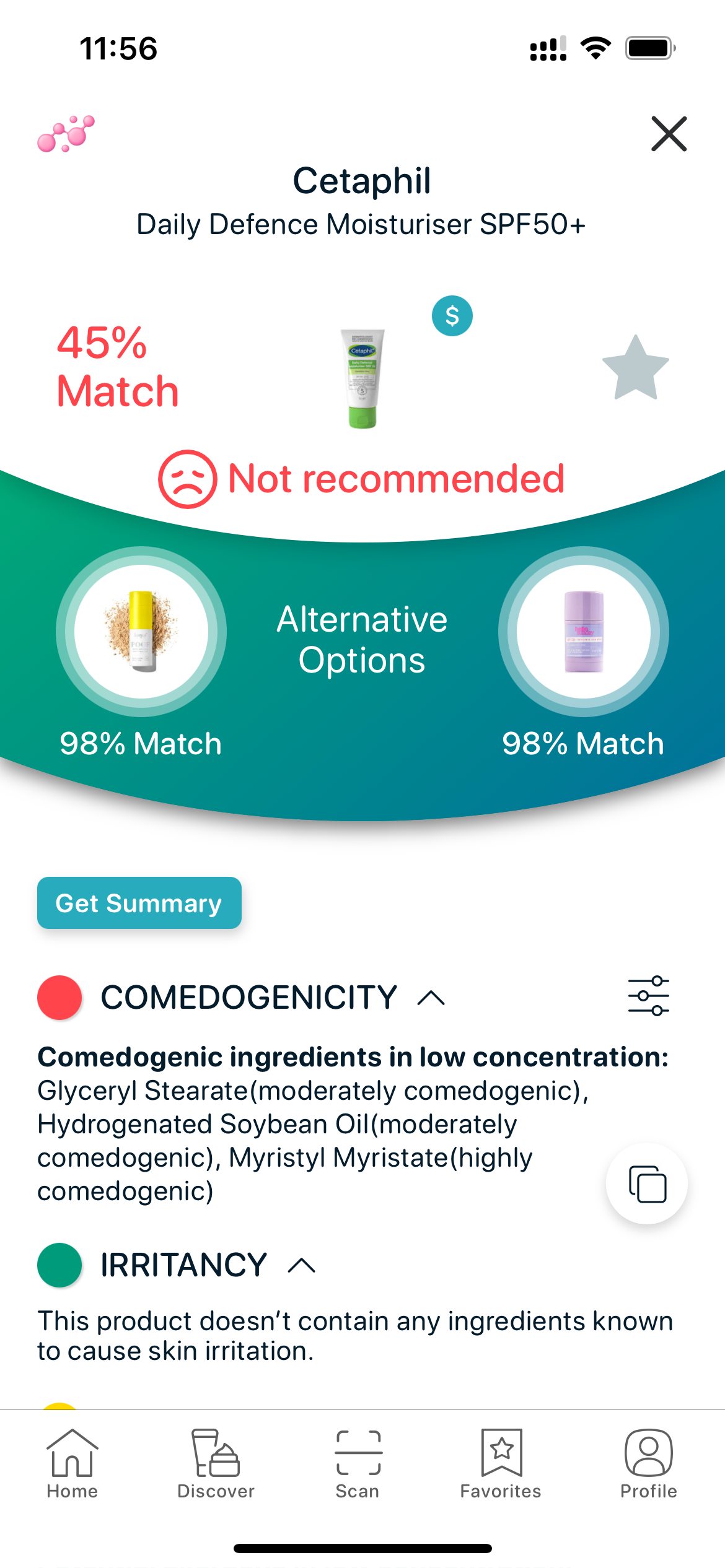
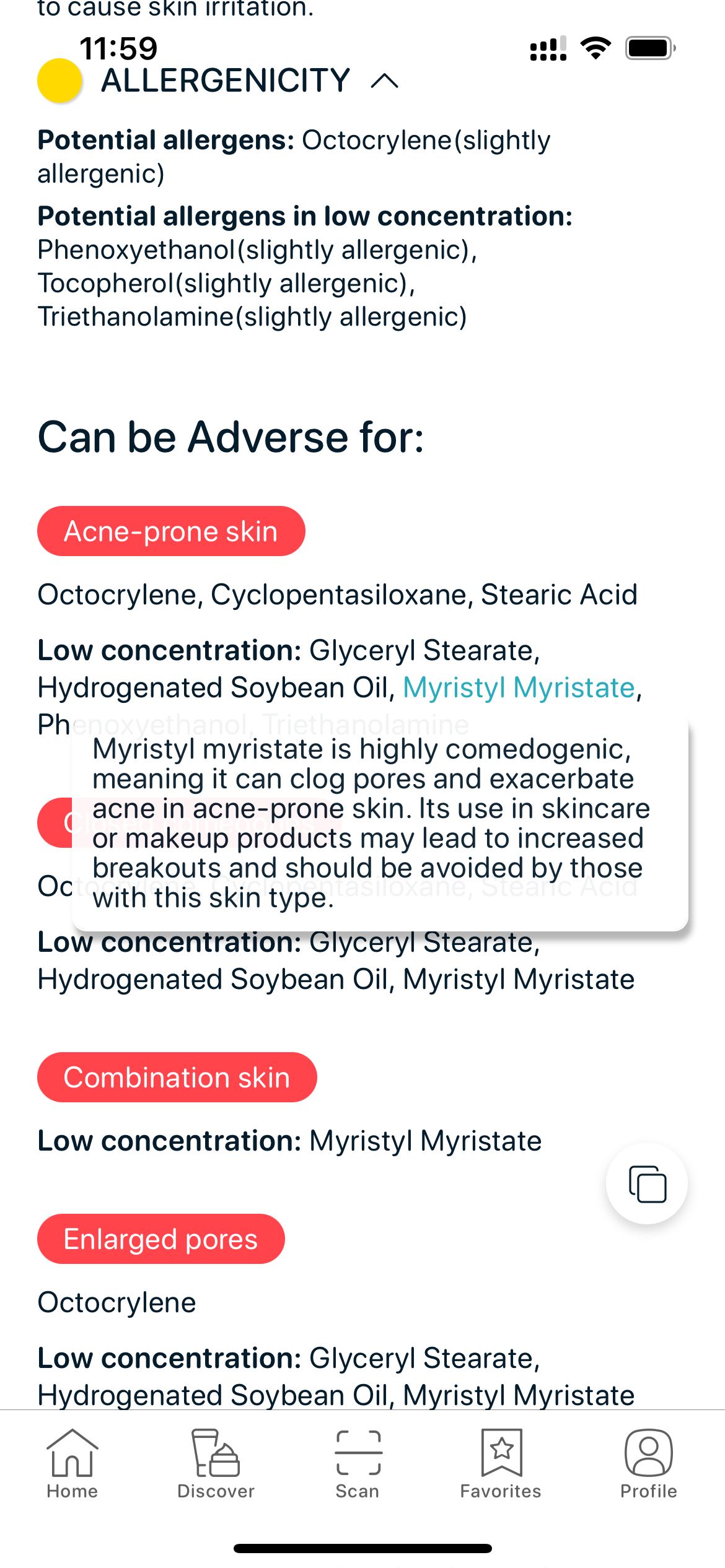
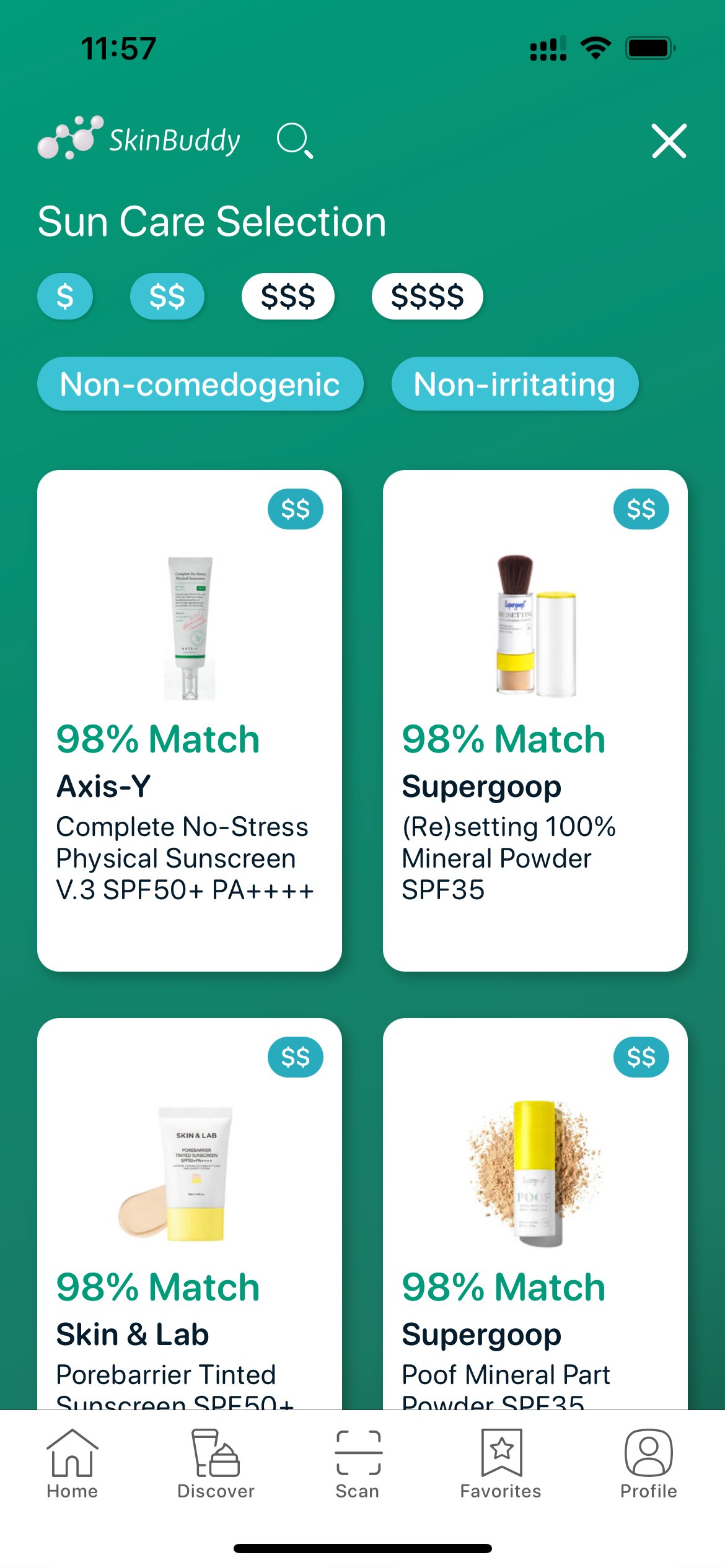
Try SkinBuddy to find out what works for your skin, and what doesn’t.
Scan your skincare, avoid pore-clogging or irritating ingredients, and discover smarter product matches. Open the web app or download the mobile app to get started.
or
Check Products OnlineCheck if your skincare suits your skin type, sensitivity, or acne-prone needs at skinbuddy.app and discover better options that match your routine and goals. SkinBuddy makes it easy, fast, and science-backed.
Scan to get started:

Web App (mobile only)

App Store & Google Play
💡 BONUS RESOURCE:
We’ve created a FREE PDF guide with 7 non-comedogenic, non-irritating sunscreens that also don’t contain any known hormonal disruptors.
📥 Download it here — no signup required.
FAQs About Sunscreens for Acne-Prone Skin
-
Should I use mineral or chemical sunscreen if I have acne-prone skin?
Mineral sunscreens with zinc oxide or titanium dioxide are generally safer for acne-prone and sensitive skin. -
Can sunscreen cause purging?
No. Purging is caused by active ingredients that speed up cell turnover (like retinoids or AHAs). Sunscreen-related breakouts are usually from comedogenic or irritating ingredients. -
How often should I reapply sunscreen if I have acne-prone skin?
Every 2 hours during sun exposure, regardless of skin type. Choose a lightweight formula for easier reapplication. -
Are “oil-free” sunscreens always safe for acne?
Not necessarily. “Oil-free” doesn’t mean non-comedogenic - always check the full ingredient list.
Final Thoughts
The right sunscreen won’t just protect your skin from UV damage - it will also keep your pores clear and inflammation low. Knowing which ingredients to avoid is key, and SkinBuddy makes that process effortless.
Ready to find your perfect acne-safe sunscreen?
👉 Download the SkinBuddy app and start scanning your SPF today.



